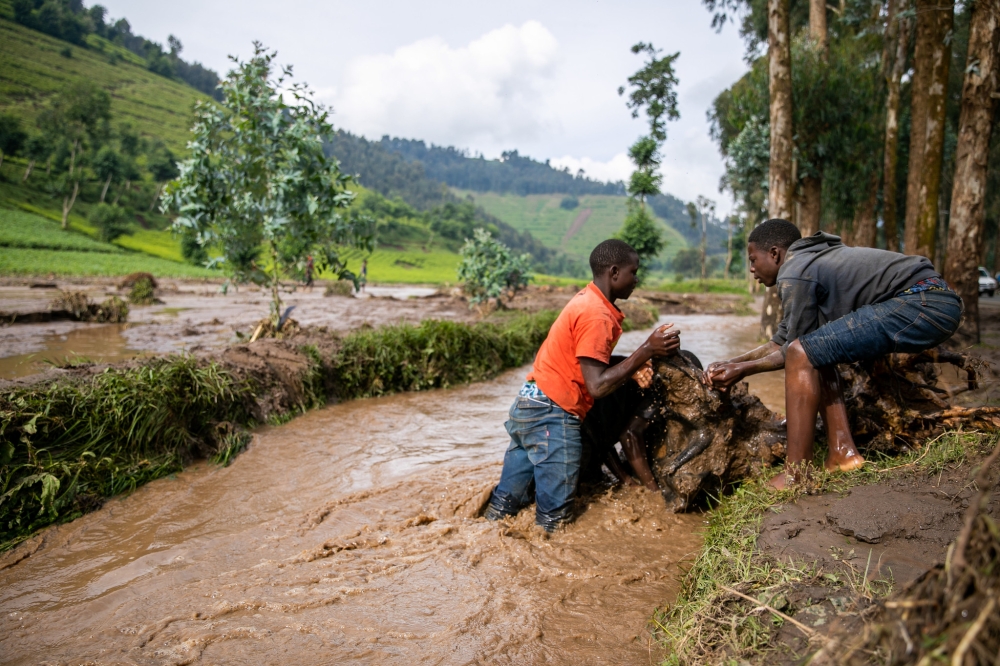

The Ministry of Local Government has revealed plans to relocate and rehouse more than 650 households that were displaced by the devastating floods caused by River Mukungwa in Nyabihu district, western province, in May 2023. The move aims to ensure the safety of residents by providing them with secure accommodations in designated safe zones.
River Mukungwa runs along the districts of Ngororero, Nyabihu, Musanze, Burera, and Gakenke, acting as a convergence point for several smaller rivers, including Nyamutera and Giciye.
ALSO READ: River Mukungwa Floods ravage Gakenke rice farms
According to Samuel Dusengiyumva, the Permanent Secretary in the Ministry of Local Government, the affected households are primarily located in the Shyira and Rugera sectors of Nyabihu district. The decision to relocate residents from flood-prone areas was based on a comprehensive assessment conducted by experts from the Rwanda Water Resources Board (RWB), Rwanda Space Agency utilizing satellite data, and the National Land Authority.
"The assessment report revealed that the current area is unsuitable for habitation due to its vulnerability to floods caused by River Mukungwa. Considering the convergence of multiple small rivers into Mukungwa, it was concluded that over 600 households in the Shyira and Rugera sectors must be relocated," Dusengiyumva said.
He further explained that the region has experienced severe flooding consistently since 2016. In 2020, 29 people lost their lives due to landslides in the Shyira sector. Similarly, in May of this year, 19 individuals perished in flooding within the same sector. Furthermore, in 2020, a neighboring sector in Gakenke district witnessed the loss of 24 lives due to floods.


ALSO READ: Floods Destroy 37 more houses in Nyabihu
The recent flooding has affected properties located within 12 meters of the riverbank. Dusengiyumva clarified that some affected residents were renting houses and could seek alternative accommodation in safe zones with the assistance of a three-month rent fee grant provided by the government. Other residents whose houses were damaged but possessed unaffected properties in different areas will also be encouraged to relocate.
Moreover, vulnerable residents whose houses were destroyed and lack alternative accommodations will receive government support to secure housing in safe zones. Dusengiyumva acknowledged that some individuals had taken loans from banks to construct their damaged homes. These individuals will receive assistance in negotiating loan repayment terms with the banks.
Emphasizing the need for resilient infrastructure, Dusengiyumva urged residents and property owners to adopt rainwater harvesting methods. He also noted that efforts are underway to address the agricultural impact of the floods, particularly in the valley along River Mukungwa in the Shyira sector, where crops have been damaged. Plans for smart agriculture, including land consolidation, will be proposed to affected farmers.
ALSO READ: What will it take to have disaster-resilient roads?
Hussein Bizimana, a Hydraulic and Flood Modeling Specialist at the Rwanda Water Resources Board (RWB), revealed that 310 households in the Rugera sector and 339 households in the Shyira sector of Nyabihu district have been identified for relocation. Stressing the urgency of the situation, Bizimana emphasized the need to relocate people to prevent similar catastrophic effects in the future, especially as climate change exacerbates the risk of flooding.


